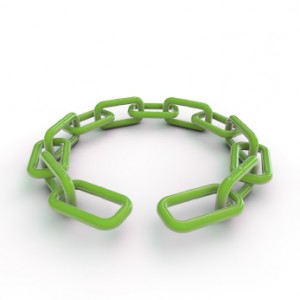 According to the Diagnostic and Statistical Manual IV, in order to be diagnosed with Borderline Personality Disorder (BPD) you must regularly exhibit five out of the nine symptoms of BPD. These symptoms can be confusing if you are experiencing them without an understanding of why.
According to the Diagnostic and Statistical Manual IV, in order to be diagnosed with Borderline Personality Disorder (BPD) you must regularly exhibit five out of the nine symptoms of BPD. These symptoms can be confusing if you are experiencing them without an understanding of why.
Being diagnosed may help get you on track to understanding your symptoms and seeking treatment for Borderline Personality Disorder, but how does that diagnosis affect your outlook on yourself and on the way you view everyday life?
Sometimes being diagnosed with BPD can feel like being “labeled” which, in addition to dealing with the alienating and often paralyzing symptoms of BPD, can lead to severe depression.
Depression, as a common co-occurring disorder with Borderline Personality Disorder, can really fuel and exacerbate the symptoms you experience as a person dealing with BPD, to the point where you might feel lost in a vicious cycle of symptoms and hopelessness.
Fear of abandonment? Suicidal or self-harming thoughts and behavior? Chronic feelings of emptiness? How do you combat these when you’re so down on yourself you can hardly face the day?
Here are a few tips for dealing with the cycle of BPD and depression:
Avoid Self-Medication
The urge to numb depression with alcohol is often a strong one. The truth is, the way alcohol affects your brain chemistry, it is actually more of a depressant. Alcohol may initially release a shot of dopamine (the happy chemical!) in your brain, but it also suppresses the excitatory neurotransmitters that keep your brain firing and increases the inhibitory neurotransmitters that tell your brain to slow down. Eventually, this chemical merry-go-round will lead you to further depression. The same goes for other chemicals used to self-medicate — coffee, cigarettes, or other drugs may excite the brain and add to anxiety, which only feeds depression.
Keep a Journal
Getting your thoughts and emotions outside of your head and onto paper can be beneficial in that it will give you a chance to look at them with more objectivity. Studies show that depressed individuals who commit to daily recording of upsetting events, listing the thoughts and emotions that spring from the event and then listing possible ways to deal with them (from impulsive to rational) have improved coping skills. Developing an ability to cope and manage your emotions is a huge step toward battling depression.
Seek Treatment for your Borderline Personality Disorder
One of the most common symptoms of depression is a chronic sense of being out of control. Seeking treatment for your Borderline Personality Disorder can help you feel more in control. There are several choices for Borderline Personality Disorder treatment centers, be sure to look for one that has the capability to deal with co-occurring disorders. That way you will have a treatment plan catered specifically to your needs.
Get Moving
A Harvard Health review of studies dating back all the way to 1981 shows that a regular program of even moderate exercise can improve your mood and play an important supporting role in treating even severe depression. Getting out of your head and concentrating on the physicality of moving your body can break the cycle of dark thoughts, maybe long enough to take that first step toward seeking treatment. Many Holistic Borderline Personality Disorder treatment centers offer classes such as yoga that calm the mind while working the body.
Reach Out
If you are suffering from depression to the point where you feel hopeless — even that loved ones would be “better off” without you — do not keep these feelings or thoughts from your therapist or whoever you consider to be your support system. If you do not have a therapist or a support person, reach out to suicide hotlines or even simply Google the thoughts you are having. Chances are, you are not alone in the way you are feeling. Reading stories from personal blogs on living with depression or living with BPD can reassure you that, even if you feel labeled or different, you are not alone.
The good news is that depression and Borderline Personality Disorder are both considered to be treatable, with statistics showing improvement in individuals who seek professional help from Borderline Personality Disorder treatment centers.




1 Comment
Pingback: Are You Self-Medicating With an Eating Disorder? | Borderline Personality Treatment